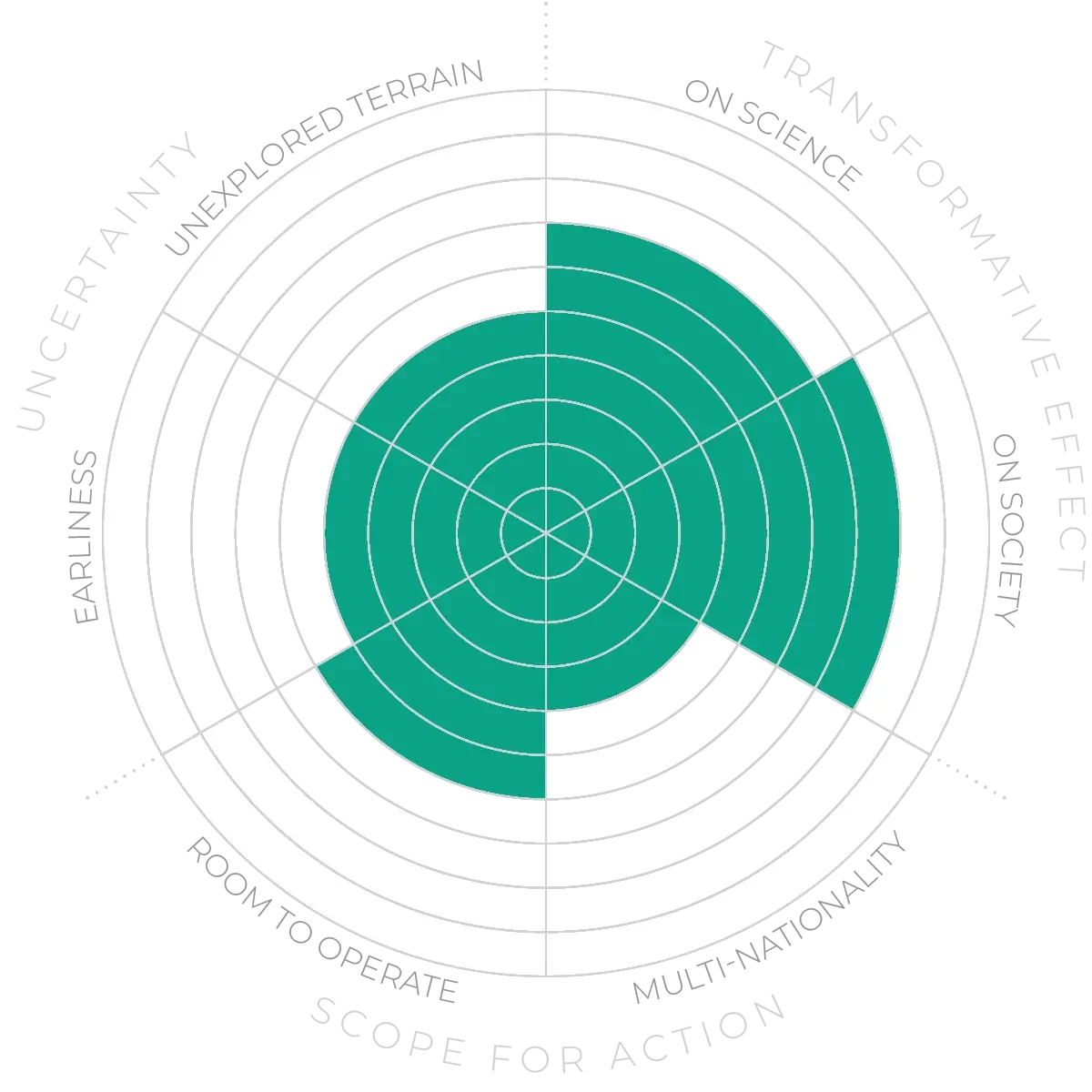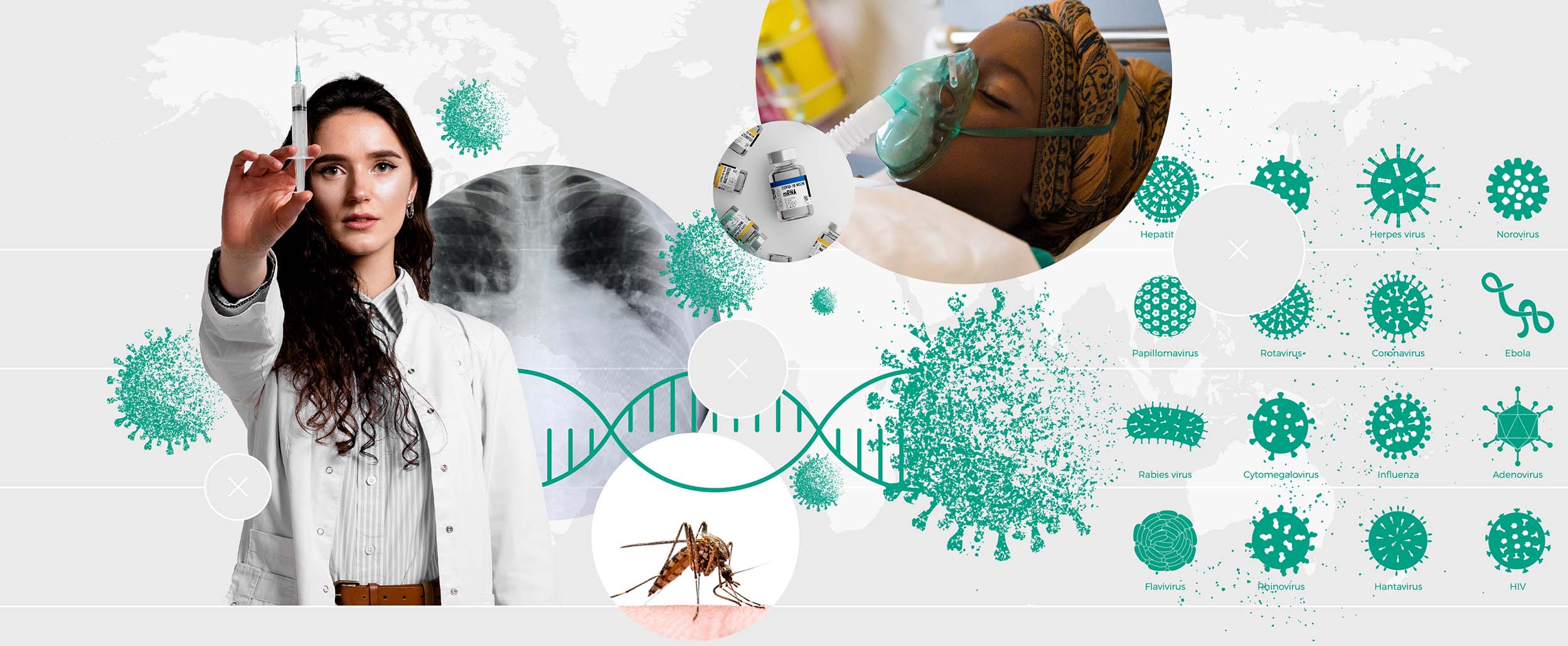Future Horizons:
10-yearhorizon
Exposome development
25-yearhorizon
Pathogen index created
Some of the most dramatic progress has been in vaccine development, as evidenced by the success of the COVID vaccines.6 2021 also saw one of the biggest successes of recent years, with the approval of the first successful malaria vaccine RTS,S/AS01 or Mosquirix.7 There are also approved vaccines for the Ebola virus,8 and several Zika virus vaccines are undergoing clinical testing.9 If these vaccines can be successfully rolled out to vulnerable populations, the burden of these diseases will be substantially reduced.10
A key challenge for pathogen biologists and medical professionals is to understand the multifarious health impacts of pathogens. This has been highlighted by the COVID-19 pandemic. While coronaviruses like SARS-CoV-2 are thought of as primarily respiratory infections, in fact their effects range across many body systems.11
Finally, pathogen biology must be harnessed for the broader long-term goal of predicting and preventing outbreaks. This means understanding which pathogens are “out there” on a global scale and identifying those that pose a risk to human health.
Pathogen biology - Anticipation Scores
The Anticipation Potential of a research field is determined by the capacity for impactful action in the present, considering possible future transformative breakthroughs in a field over a 25-year outlook. A field with a high Anticipation Potential, therefore, combines the potential range of future transformative possibilities engendered by a research area with a wide field of opportunities for action in the present. We asked researchers in the field to anticipate:
- The uncertainty related to future science breakthroughs in the field
- The transformative effect anticipated breakthroughs may have on research and society
- The scope for action in the present in relation to anticipated breakthroughs.
This chart represents a summary of their responses to each of these elements, which when combined, provide the Anticipation Potential for the topic. See methodology for more information.



